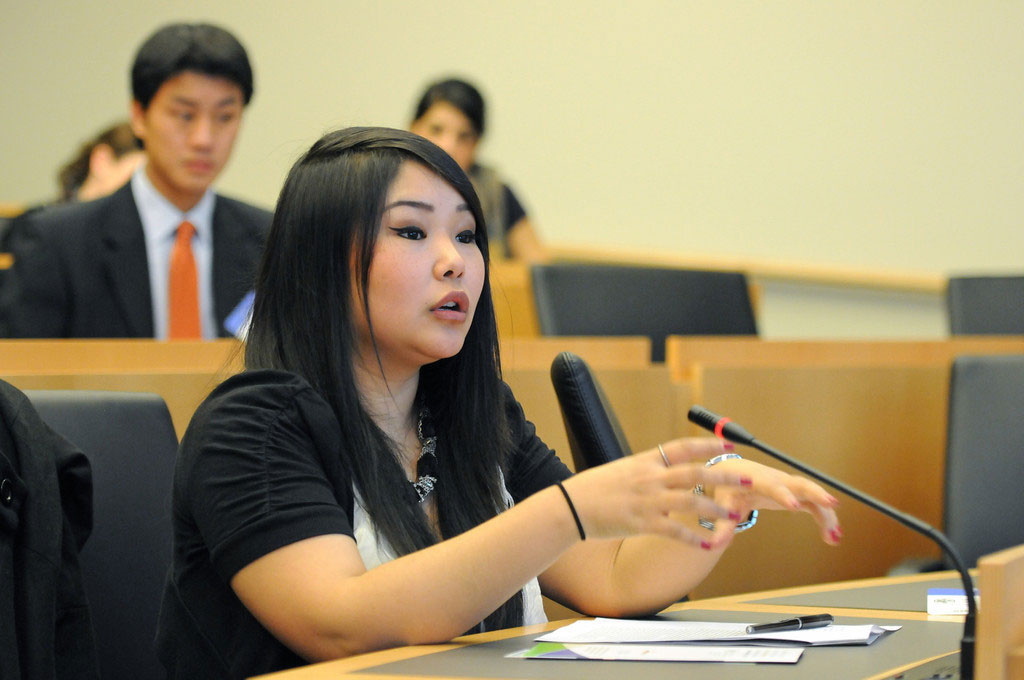
The co-founder of a young women’s group in Afghanistan lauded the increasing civic involvement of her country’s youth but lamented continuing “cultural issues,” such as honor killings. Another student was the first in her family to get a college education, and she worried about the lack of opportunity in the provinces outside the Afghan capital. A young man rattled off the precise portions of Afghan ministry budgets that remained unspent and could be applied to long-neglected priorities.
The three were among 20 Afghan college students studying in the U.S. who participated in a discussion at USIP on Jan. 7. The session was aimed at getting their take on what has worked and what still needs to be done for development in Afghanistan, especially in education and women’s empowerment. The session was hosted by USIP’s Center for Gender and Peacebuilding with the Initiative to Educate Afghan Women and the Foundation for Afghanistan.
The students are studying in fields ranging from economics and finance to film-making, conflict resolution and international relations. Some of them are in the U.S. with support from the 10-year-old Initiative to Educate Afghan Women, which aims to develop Afghanistan’s future women leaders with higher education and career guidance. Others are studying with scholarships from the Foundation for Afghanistan, established by Said Jawad, a former Afghan Ambassador to the U.S.
For more than 1 ½ hours in a session moderated by Ambassador Steve Steiner of the USIP gender and peacebuilding center, the students held forth about what they see as the triumphs and failures of Afghan and international efforts in furthering their country’s development.
“I have to talk to my father. I have to talk to my brothers. I have to talk to the men in my country” to persuade them of the benefit of having women involved more in civic affairs, one young woman said passionately, jamming her right index finger into the table in front of her. “We have to give equal opportunity to every citizen of the country.”
The students’ articulate observations illustrate the urgency felt by many Afghans to cement the progress made in the past 12 years and overcome the formidable hurdles of the transition as most NATO forces begin to leave (Bush Center blog: Transition Brings Uncertainty for Afghan Women).

Concerns over the sustainability of security and economic advances are likely to dominate President Hamid Karzai’s visit to Washington this week to meet with President Barack Obama and other officials on the future role the U.S. will play in Afghanistan.
“The main burden is on Afghans,” Omar Samad, Afghanistan Senior Expert in Residence at USIP and a former Afghan Ambassador to France and Canada, told the students. “It has to be on Afghans. But at the same time, we cannot do this by ourselves.”
The students expressed concern over a range of issues, including continuing corruption that forces young people and their families to pay bribes or cultivate personal connections for the most routine bureaucratic functions. One who spent years as a refugee also said she was “shocked” at the emphasis on ethnicity and tribal groups when she returned to Afghanistan, so different from when she left. And another student cited media as too seldom depicting Afghan women as professionals or individuals distinct from their roles as wives and mothers.
“I believe that change will happen,” one student said. “But still we must be more organized.”
How do you think the international community can be most effective in helping empower the younger generation in Afghanistan?



